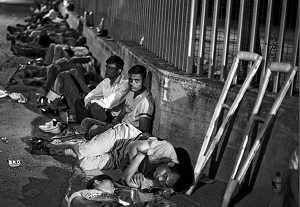Third country cases: Dublin III Regulations compared to Dublin II

This guest blog post is written by Robert Swinfen, a member of the Management Committee of NCADC. He has been closely involved in a few campaigns for the right to remain, including a successful campaign to prevent a transfer under the Dublin II regulations. “Dublin” is the term often used to refer to the agreement between the EU countries about where people’s asylum claims are heard. The numerals after the name is the official way they are written: so Dublin II which means Dublin 2 and Dublin III means Dublin 3). The normal rule is that it the asylum claim Read the full article…
Quality content
- Best Casinos Not On Gamstop
- Non Gamstop Betting Sites
- UK Casino Sites Not On Gamstop
- Sites Not On Gamstop
- Casino Not On Gamstop
- Non Gamstop Casinos UK
- Casinos Not On Gamstop
- UK Casinos Not On Gamstop
- Non Gamstop Casino UK
- Casinos Not On Gamstop
- Non Gamstop Casino
- Slots Not On Gamstop
- Non Gamstop Casino Sites UK
- UK Casino Not On Gamstop
- Top Online Casinos In UK
- Non Gamstop Casino UK
- UK Online Casinos Not On Gamstop
- UK Casinos Not On Gamstop
- Gambling Sites Not On Gamstop
- Betting Sites Not On Gamstop
- Top UK Casino Sites



